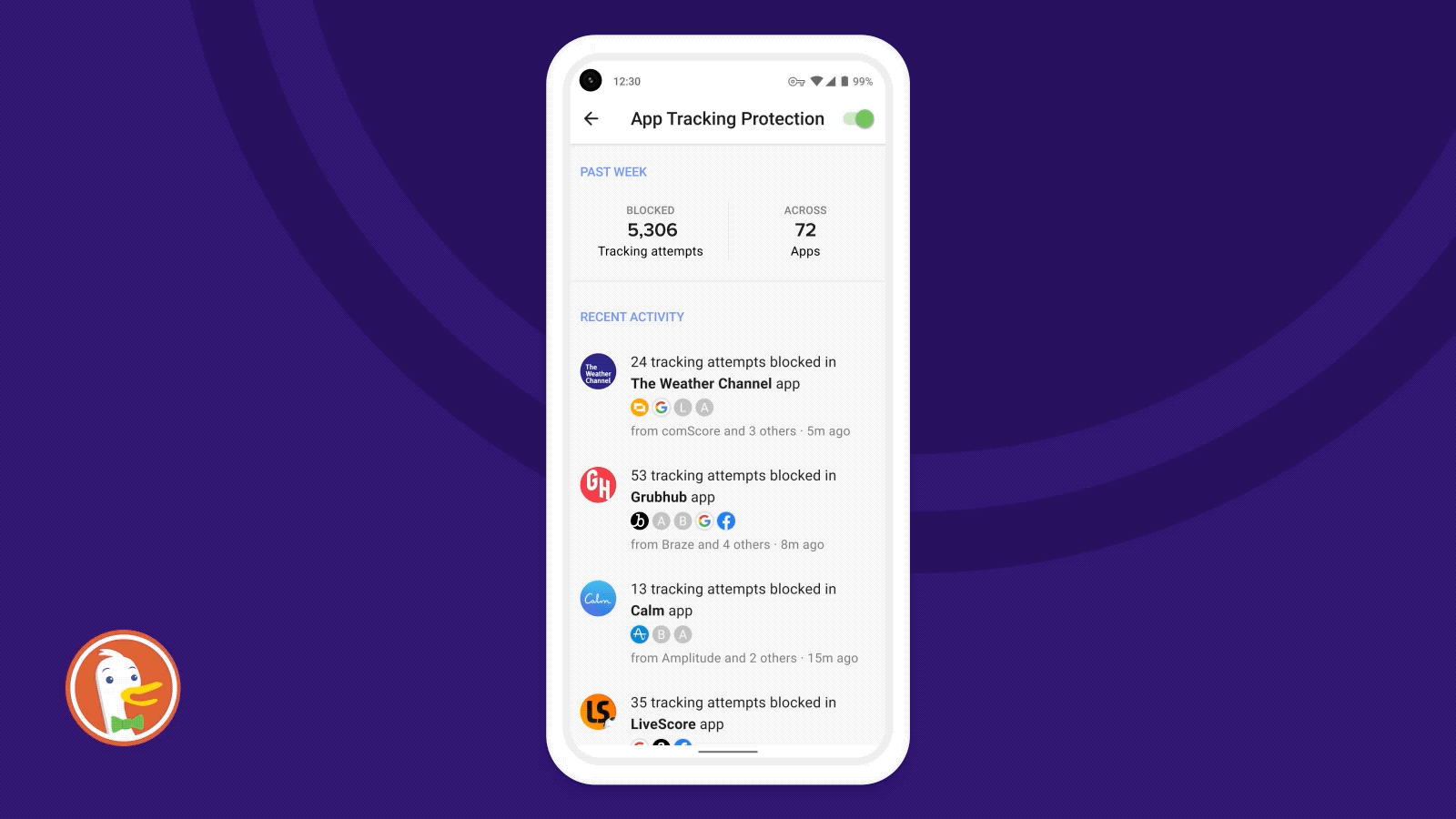Apple’s two new iPhone and iPad privacy protections caused quite an uproar earlier this year. Facebook contested them fiercely, starting a massive ad campaign against Apple. The two privacy features are the app privacy labels and the App Tracking Transparency (ATT). The former informs users on the kind of data apps collect. ATT, meanwhile, forces developers to ask for permission to track users. Google is only ready to match the privacy labels feature when it comes to Android privacy. It might be a while until Google brings anti-tracking features to its mobile operating system. But there’s already a tool that might help you prevent Android apps from tracking you. That’s DuckDuckGo, which has a new feature now available in beta. And if it works, the App Tracking Protection (ATP) might be even better than Apple’s ATT.
Better than Apple?
Apple’s ATT has been quite popular with users, with many people refusing to allow iOS apps to track them. A recent study showed that ATT might have led to $10 billion in losses for social media companies, with Facebook’s bottom line being hurt the most in the process. With ATT, Apple blocks companies from using the unique Identifier for Advertisers (IDFA) feature to track users.
DuckDuckGo vice president of communications Kamyl Bazbaz told The Verge that ATT “only restricts direct access to a user’s IDFA, the rest is essentially an honor system, where Apple is asking developers to respect user choice not to track but isn’t actually blocking any third party trackers itself.”
“App Tracking Protection blocks those third-party trackers directly, making the tool more powerful than what’s available on iOS,” the executive said.
That’s an interesting comparison, considering that DuckDuckGo can’t influence the way Android operates. The entire anti-tracking process happens inside DuckDuckGo, the app you have to download to block tracking.

How DuckDuckGo anti-tracking works on Android
DuckDuckGo explains in a blog post that App Tracking Protection is a free feature of its DuckDuckGo Android app.
ATP will detect when Android apps are about to send data to third-party tracking companies that DuckDuckGo keeps track of. That’s where the block happens. App Tracking Protection will run in the background and block the app trackers it detects. Everything happens in real-time, and the anti-tracking tool operates continuously.
DuckDuckGo likens the functionality to a VPN service, although ATP doesn’t route traffic through a VPN server:
App Tracking Protection is not a virtual private network (VPN), though your device will recognize it as one. This is because App Tracking Protection uses a local “VPN connection” which means that it works its magic right on your smartphone. However, App Tracking Protection is different from VPNs because it never routes app data through an external server.
The company said that over 96% of the popular free Android apps it tested contained hidden third-party trackers. Of them, 87% sent data to Google, and 68% sent data to Facebook.
How to enable DuckDuckGo’s anti-tracking tool
The company explains the service is still in beta as it perfects it. but you can join it from the DuckDuckGo with a few simple taps:
- Download DuckDuckGo for Android (or update to the latest version).
- Open Settings > App Tracking Protection (in the Privacy section).
- Click “Join the Private Waitlist.”
DuckDuckGo warns that some app features might be harmed as a result. But users have the option of resuming tracking for some of their favorite apps if they encounter performance issues. This is, after all, a beta test.
Also important is that tracking from a few unspecified apps will continue to work. The “small number of apps” excluded from tracking rely on the feature “to work properly.” DuckDuckGo said it hopes to reduce the list in time.







